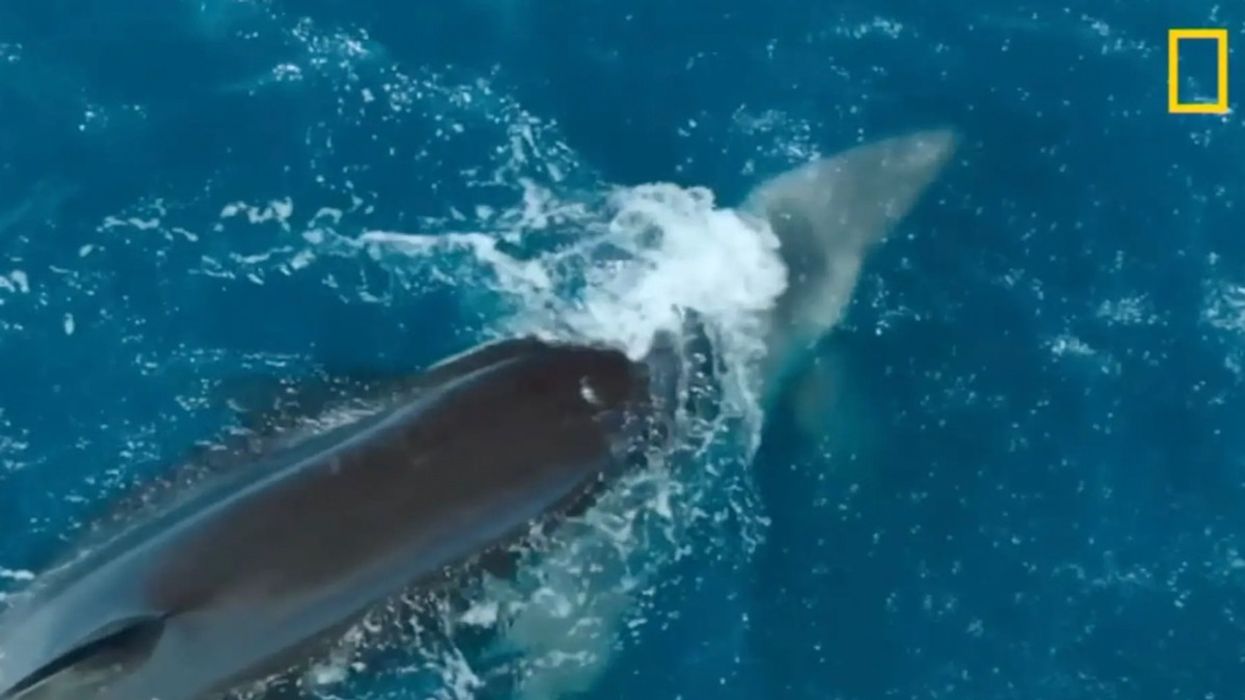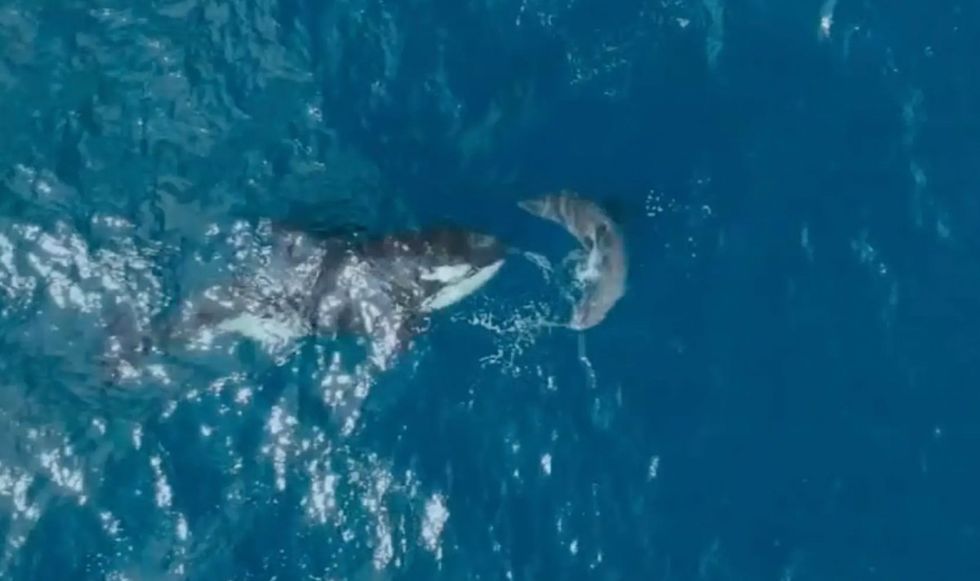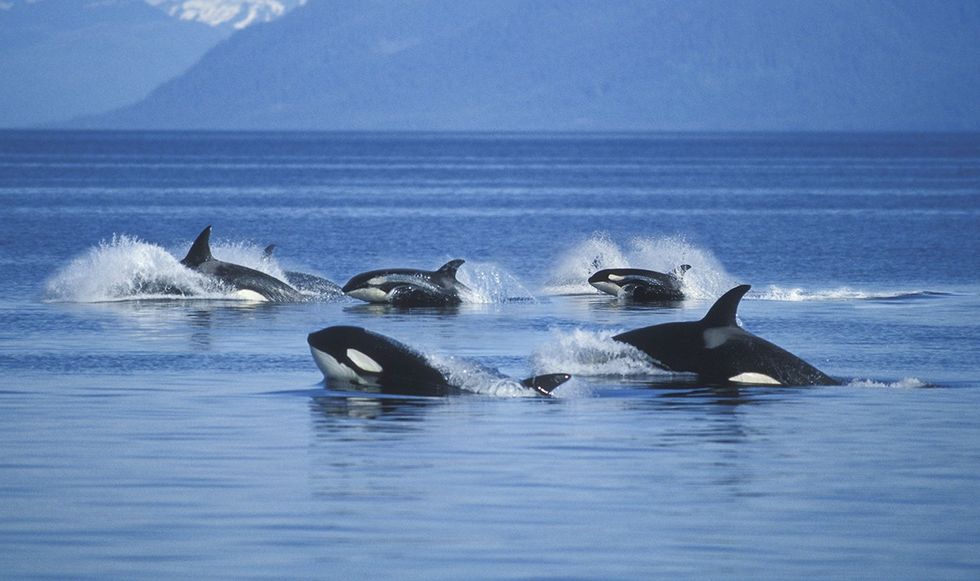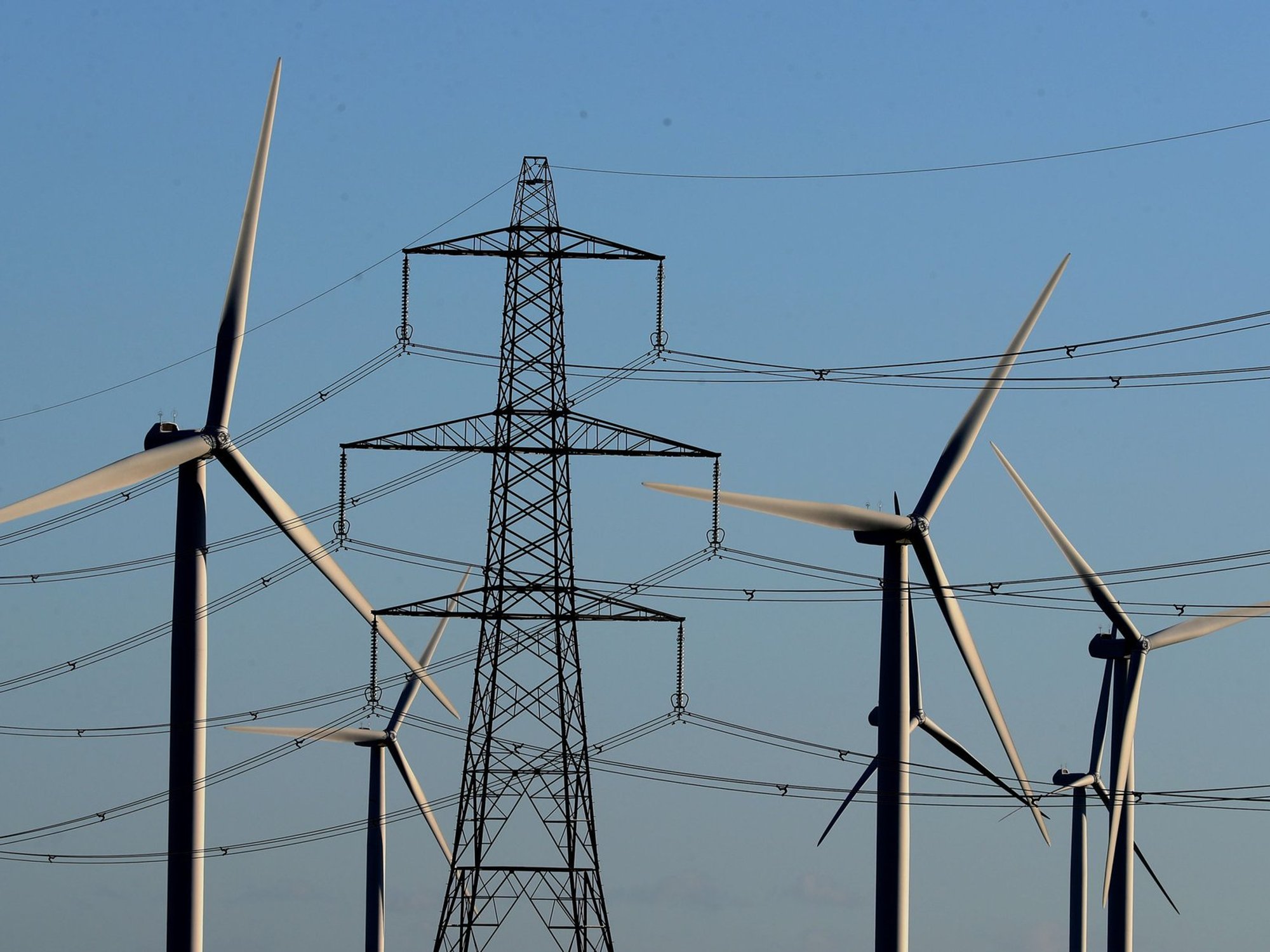Jaw-dropping moment lone orca kills great white shark in rare event that could signal major ecological shift

This is the first time a single orca is believed to have been filmed killing a great white
|National Geographic

Orcas usually hunt in concert but climate change could be changing their behaviour, scientists fear
- A 60-year-old grandmother orca has been filmed killing a great white
- It follows a similar lone wolf attack on the top predator last year
- Scientists fear climate change is changing the hunting behaviour of orcas
Don't Miss
Most Read
This is the rare moment a killer whale takes out a great white shark in a high-speed attack along a stretch of the South African coastline.
During the heart-stopping encounter, filmed as part of National Geographic limited series, “Queens”, a 60-year-old grandmother killer whale named Sophie races towards the great white.
The shark is no match for Sophie's speed and precision: the killer whale chomps into its side before disappearing under the surface.
"Orca are very smart animals, they're very powerful, and in some cases probably even more powerful than a white shark", Chris Lowe, a professor of marine biology, told ABC news.

This is the first time a single orca is believed to have been filmed killing a great white
|National Geographic
This is the first time a single orca is believed to have been filmed killing a great white.
The lone-killing could signal a change in orca behaviour brought on by climate change, scientists fear.
Orcas have been killing great whites in concert along a stretch of South African coastline since at least 2017.
It's not unprecedented for orcas to hunt prey individually but attacking one of the world's largest predators represents a sea change.
It comes after another male orca, known as Starboard, single-handedly killed a 2.5-meter (8.2-foot) juvenile white shark within the space of two minutes last year.
“Over two decades of annual visits to South Africa, I’ve observed the profound impact these killer whales have on the local white shark population. Seeing Starboard carry a white shark’s liver past our vessel is unforgettable,” said Dr. Primo Micarelli, a marine biologist at Italy’s Sharks Studies Centre and the University of Siena who was aboard one of two vessels from which researchers observed the attack.
“Despite my awe for these predators, I’m increasingly concerned about the coastal marine ecology balance,” Micarelli said in a statement.
Starboard’s style of attack is a radical departure from the normal hunting patterns among orcas, which surround large prey, such as sea lions, seals and sharks, and use their combined intelligence and strength to attack, said Alison Towner, a doctoral researcher at Rhodes University and lead author of a recent study into the rare phenomenon.

Orcas generally hunt prey in concert but climate change could be changing their behaviour
|Getty Images
Starboard’s kill is a radical departure from the normal hunting patterns among orcas, which surround large prey, such as sea lions, seals and sharks, and use their combined intelligence and strength to attack, said Alison Towner, a doctoral researcher at Rhodes University and lead author of a recent study into the rare phenomenon.
Previously observed attacks on great whites involved between two and six orcas and took up to two hours, as per the study, published in African Journal of Marine Science.
“This sighting revealed evidence of solitary hunting by at least one killer whale, challenging conventional cooperative hunting behaviors known in the region,” said Towner, who has studied great white sharks for 17 years, learning about their movement patterns through tagging data, in a statement.
“While we don’t have solid evidence on the specific drivers, the arrival of the killer whale pair could be linked to broader changes in the ecosystem,” Towner continued.
“It’s clear that human activities, such as climate change and industrial fishing, are stressing our oceans. To fully grasp these dynamics, additional research and funding are essential.
“There are still plenty of unanswered questions about these shark-hunting killer whales and where they came from.”










